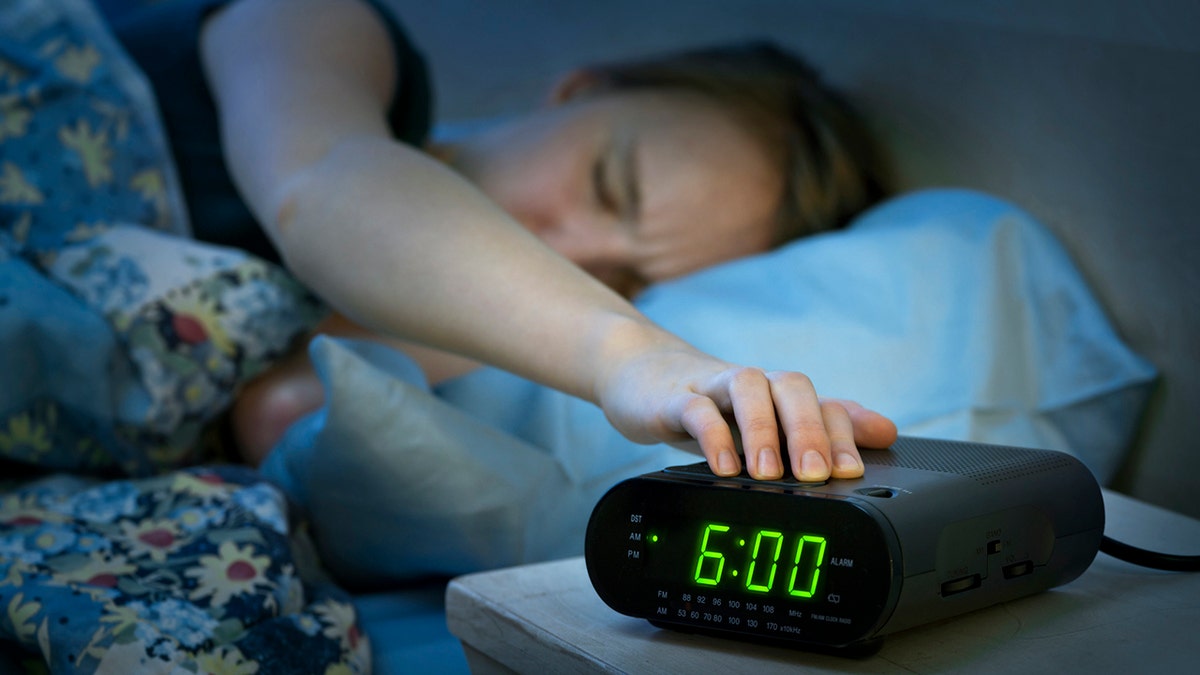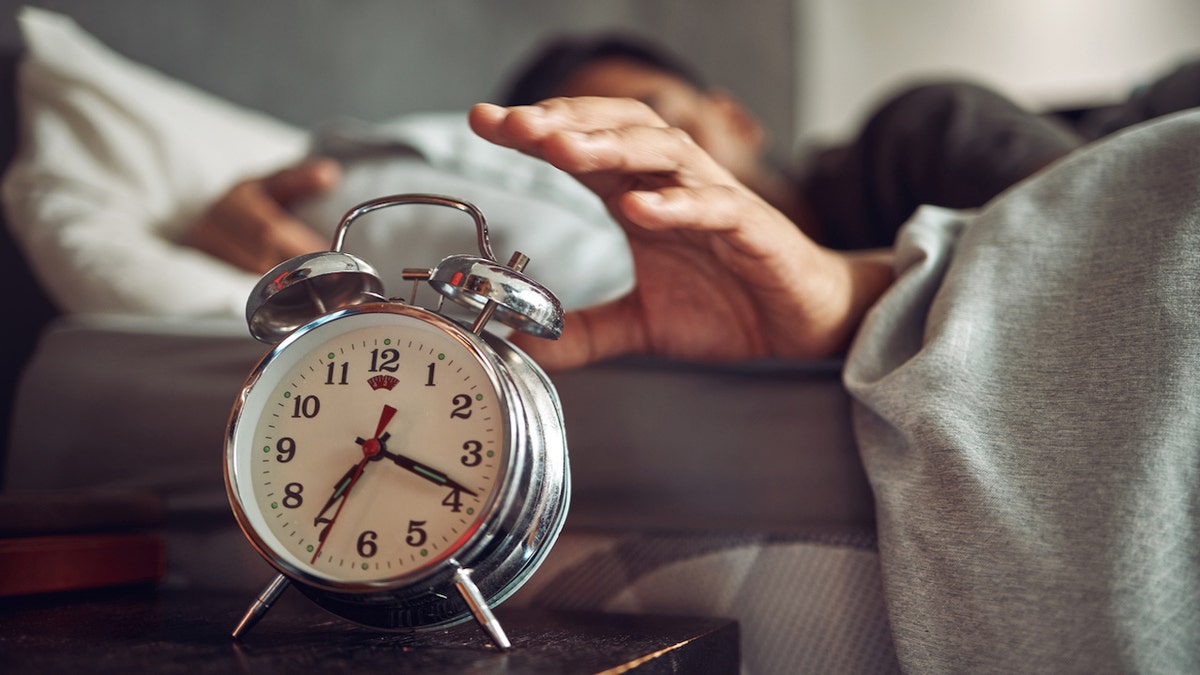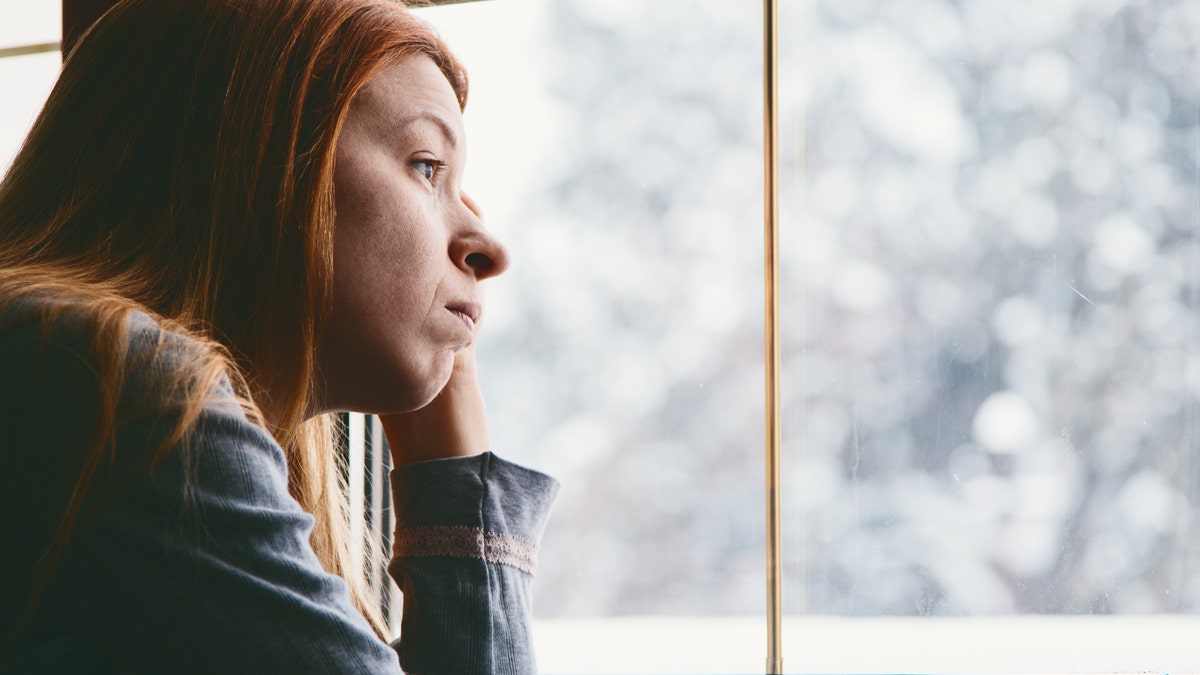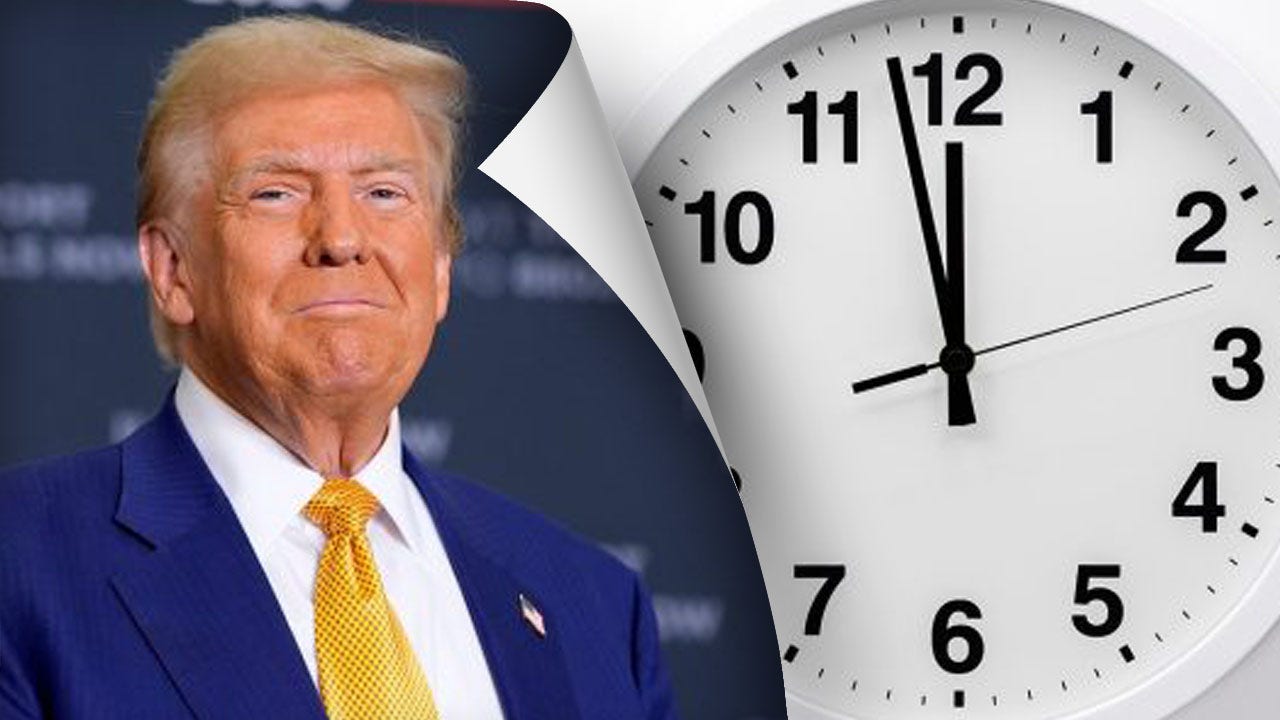- Solana (SOL) Surges Past $200: A Comprehensive Technical and Fundamental Analysis
- IRS sending $1,400 stimulus checks to 1 million Americans — here’s how everyone else can save the same amount
- This Big 401(k) Change Coming in 2025 Could Supercharge Your Savings. Here’s Who Can Benefit.
- 13 Easy Ways To Boost Your Savings In 2025 And Beyond
- STAR Refinery achieves major energy savings and emission reductions
President-elect Donald Trump wants to do away with daylight saving time (DST), a move that some experts say could improve health and wellness.
Trump announced the goal in a post on Truth Social last Friday.
“The Republican Party will use its best efforts to eliminate Daylight Saving Time, which has a small but strong constituency, but shouldn’t!” he wrote. “Daylight Saving Time is inconvenient, and very costly to our Nation.”
‘I CAN’T SLEEP BECAUSE OF RACING THOUGHTS AT NIGHT — HOW CAN I STOP THEM?’: ASK A DOCTOR
With rare exceptions, the vast majority of the U.S. follows DST, which mandates adjusting clocks forward one hour in the spring (the second Sunday in March) to extend daylight during summer evenings.
In the fall (the first Sunday in November), the clocks are turned back to standard time.
President-elect Donald Trump wants to do away with daylight saving time (DST), he announced in a post on Truth Social. (AP Photo/Alex Brandon; iStock)
The practice was first introduced in 1918 with the Standard Time Act, a wartime measure designed to conserve energy during World War I, according to the U.S. Department of Defense.
It was again implemented in 1942 during World War II to conserve fuel and “promote national security and defense.”
For two decades, the rule was not enforced, until Congress passed the Uniform Time Act in 1966, a federal mandate that established daylight saving time.
Doing away with disruption
Dr. Earnest Lee Murray, a board-certified neurologist at Jackson-Madison County General Hospital in Jackson, Tennessee, supports Trump’s aim to do away with DST.
“Honestly, it’s about time, no pun intended,” he told Fox News Digital. “The historical reason for DST doesn’t really matter anymore.”
“Honestly, it’s about time, no pun intended.”
Xem thêm : Older Homeowners Living on the Brink of Homelessness
Changing the clocks twice a year can cause disruptions in sleep patterns, which have been known to cause various health-related issues, according to Murray.
“Most of the issues occur in the springtime when transitioning to daylight saving time (losing an hour of sleep),” he said.

Changing the clocks twice a year can cause disruptions in sleep patterns, which have been known to cause various health-related issues. (iStock)
Several studies have shown that this change results in decreased sleep duration and increased fatigue during daytime hours, the doctor noted.
“This often affects cognitive performance and seems to slow thought processing,” Murray added.
Mood issues, particularly depression, have been shown to increase during time changes.

Several studies have shown that the time change results in decreased sleep duration and increased fatigue during daytime hours. (iStock)
“Several studies have also shown an increased risk of stroke during the first two to three days from the time switch,” Murray said.
“This correlates to the disruption in the circadian rhythm — and likely the overall stress it causes on the body.”
SLEEPY DURING THE DAY? IT COULD BE AN EARLY WARNING SIGN OF DEMENTIA, STUDY SUGGESTS
Jonathan Alpert, a psychotherapist in Manhattan and Washington, D.C., agreed that sleep quality might improve if daylight saving time is eliminated.
“The abrupt shift in time can disrupt sleep patterns, leading to poor sleep quality and fatigue,” he told Fox News Digital.
“If daylight saving time is eliminated, it would help maintain a consistent sleep schedule, thereby reducing some of the issues stemming from poor sleep quality.”

One psychotherapist said his patients are more tired and less focused following the time change. (iStock)
Alpert said he notices the effects of the time change on his own patients each spring and fall.
“My patients are more tired and less focused, and often complain about an increase in stress,” he noted. “A stable time system could mitigate these effects.”
“The abrupt shift in time can disrupt sleep patterns, leading to poor sleep quality and fatigue.”
Xem thêm : Thousands of Alabama families apply for education savings accounts on opening day
“Ultimately, having a consistent time system would allow people to stay more alert, and we might see an increase in productivity.”
Consistent light and dark cycles are also critical for regulating the body’s circadian rhythm, Alpert pointed out.
CLICK HERE TO SIGN UP FOR OUR HEALTH NEWSLETTER
“Disruptions caused by daylight saving have been linked to an increase in mood disorders, which is consistent with what I see in my practice,” he said.
There could also be a decrease in accidents and workplace injuries, as studies show these often increase following the time change, according to the psychotherapist.
‘A seasonal shift’?
Despite the likely benefits, there could be a downside to eliminating DST, Alpert said.

“Shorter evening daylight hours could potentially affect people’s motivation to be active or social after work,” one expert said, noting that seasonal affective disorder (SAD) isn’t just a winter phenomenon. (iStock)
“Without daylight saving time, there would be fewer hours of sunlight in the evening during spring and summer. This could reduce opportunities for outdoor activities after work, which many people find enjoyable and beneficial for mental health,” he told Fox News Digital.
“I’d have real concerns about how this might impact people, especially people who have been prone to mood issues.”
CLICK HERE TO GET THE FOX NEWS APP
Seasonal affective disorder (SAD) isn’t just a winter phenomenon, the expert noted.
“Shorter evening daylight hours could potentially affect people’s motivation to be active or social after work.”
“People will adapt and adjust if a change is made — and will ultimately thrive.”
Also, given how long most Americans have been adjusting their clocks, it could be “difficult or even disorienting” for people to adjust to not having DST, said Alpert — “as for many people, it signifies a seasonal shift.”
For more Health articles, visit www.foxnews.com/health
“My guess is that if a change is made, there will be backlash, as the arguments for eliminating it are as compelling as those for keeping it,” Alpert predicted.
He added, “That said, over time, people will adapt and adjust if a change is made — and will ultimately thrive.”
Nguồn: https://poissondistribution.lat
Danh mục: News





